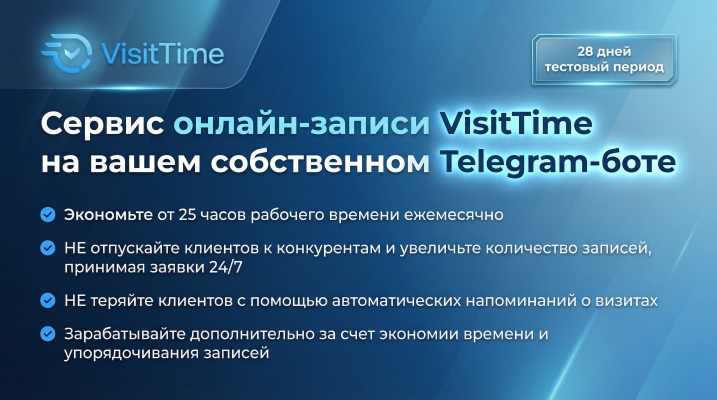| Virtual Communities Essay, Research Paper
Virtual Communities
What does this mean?
Rheingold (1993) defines virtual communities as “social aggregations that emerge from the [Internet] when enough people carry on those public discussions long enough, with sufficient human feeling, to form webs of personal relationships in cyberspace” (p. 5).
According to Rheingold and others, the notion of virtual community is not to be dismissed as a technological, cyberpunk fantasy in which people increasingly live in what Mills (1959) terms “second-hand worlds”; chained to their computer terminals, experiencing life through dehumanizing technology rather than through human contact and intimacy.
People in virtual communities use words on screens to exchange pleasantries and argue, engage in intellectual discourse, conduct commerce, exchange knowledge, share emotional support, make plans, brainstorm, gossip, feud, fall in love, find friends and lose them, play games, flirt, create a little high art and a lot of idle talk. People in virtual communities do just about everything people do in real life, but we leave our bodies behind. You can’t kiss anybody and nobody can punch you in the nose, but a lot can happen within those boundaries. To the millions who have been drawn into it, the richness and vitality of computer- linked cultures is attractive, even addictive. (p. 3)
Example of Virtual environment: IRC
One of these rich and vital computer-linked cultures is the Internet Relay Chat (IRC), a multi-user synchronous “chat” line that was designed for social rather than business use. The IRC is comprised of various channels that indicate the subject matter being discussed within (such as the homosexual sex channel) in order to manage the traffic flow resulting when hundreds of people use the IRC simultaneously. Users type words on their screens which instantaneously reach other users; but without the benefit of nonverbal cues that express subtlety of meaning, IRC users must use a series of symbols in order to communicate efficiently with one another and develop a unique sense of community based on the unconventional boundaries of the medium. For example, IRC users compensate for the lack of nonverbal cues by typing what are essentially stage directions to one another that serve to indicate a range of emotions: typing *heeheehee* might indicate playful laughter, *falls down laughing* indicates hilarity, and other words such as *squeeze* or *smooch* indicate a user’s actions toward another user. These phrases or words are recognized symbolic conventions within the IRC community, and, as Reid (1991) indicates in her work on community on the IRC, “the textual cues utilised on IRC provide the symbols of interpretation and discourse that the users of IRC have devised to meet specific problems posed by situations they face in common. Without these textual cues to substitute for non-verbal language, the users of IRC would fail to constitute a community” (p. 18). Successful computer mediated communications, particularly within the IRC environment, depends on the use of these symbolic conventions. Despite the playful nature of these conventions, the expressions of emotion that they convey are, according to Reid, “not in any way thought to be shallow or ephemeral” (p. 13).
Реклама

Ethical issues/ rules and codes
The CMC community also contains sanctions against those who violate its norms by ignoring Internet etiquette, sometimes called “netiquette,” essentially the ethics code of cyberspace. The two primary ethical principles governing the use of CMC are 1) individualism is honored and fostered, and 2) the network is good and must be protected (Krol, 1992, p. 35). Abuses such as hateful or antisocial postings on bulletin boards and using other people’s names or identities on IRC are discouraged and can be punished by means of ostracization from the community or through system operator-enforced severing of an individual’s link to the IRC (known as the “kill” function). Thus, the construction of the boundaries of community within cyberspace is not a completely arbitrary matter, and CMC may not be as egalitarian as its advocates suggest.
Disadvantage
? Computer bulletin boards serve to “add the final mechanism needed to insure that we never talk to people beyond our immediate friends and family on a personal level about anything. The global community, linked by terminals, replaces community where we are” (Schwartz, 1994).
? R]ather than providing a replacement for the crumbling public realm, virtual communities are actually contributing to its decline. They’re another thing keeping people indoors and off the streets. Just as TV produces couch potatoes, so on-line culture creates mouse potatoes, people who hide from real life and spend their whole life goofing off in cyberspace. (p 10)
Реклама

? Access to CMC both economic access in terms of the ability to afford a computer and an Internet subscription as well as intellectual access in terms of the ability to read and comprehend the lexicon of virtual communities is critical to the notion that virtual community is a pre-selected community in which, despite the Internet’s egalitarian rhetoric, a true sense of equality will not be tested until the technology becomes widespread. Thus, we must recognize that contemporary virtual communities are essentially a class phenomenon.
Advantage
? Local bulletin boards can encourage local CMC to burgeon into face-to-face meetings. He claims that this type of interaction is irreplaceable, but that computers can reinforce either individualism or community, depending on “our vision of the society that shapes their use.”
? Community can be based on intellectual and emotional proximity rather than mere physical proximity. “We are social creatures and we long for contact; I don’t think it matters that contact is via phone, Net, or face-to-face if it promotes and reinforces understanding, action, and human connections.”
? When a group of people remain in communication with one another for extended periods of time, the question of whether it is a community arises. Virtual communities might be real communities, they might be pseudocommunities, or they might be something entirely new in the realm of social contracts, but I believe they are in part a response to the hunger for community that has followed the disintegration of traditional communities around the world. (p. 4)
? Virtual community can be liken to a neighborhood salon or coffee shop where one visits friends for conversation, whether idle chat or spirited debate about philosophical or political issues; for gathering information on subjects ranging from child care to medicine; or for supporting members of the community during trying circumstances. This ability to network, gain knowledge, or find communion within cyberspace is the social glue that binds formerly isolated individuals into a community.
? Similarly, Catalfo (1993) argues that the same rituals and rites of passage that mark physical communities can be found on- line as well. Death, illness, sex, therapy and other intensely personal issues are addressed in on-line communities in addition to the more public discussions of political policy or environmental activism
I found it full of twenty-four-hour compassionate ears and souls. They not only listened, they talked back. They helped. I found myself keeping a kind of online journal in the company of these people I’d never laid eyes on. It seemed kind of miraculous, really, this communion late at night in front of the screen. (Catalfo, 1993, p. 167)
Catalfo argues that this type of spirit illustrates that community can indeed exist in cyberspace where people [gather] on a central, common ground to share the prosaic and the profound, the small facts and large events that become landmarks in a community’s life. And in the end, it is this spirit the type of fundamental human regard that so often appears to be in short supply in the “real” world that may prove to be the most exhilarating and empowering aspect of this evolving technology. (p. 175)
Although CMC offers some advantages over face-to-face communication, e.g., no preconceptions of another person based on appearance, ease of coming together, and equal access to the conversation among those participating, we find the disadvantages outweigh the advantages. Indeed, each of the “advantages” could be construed as a disadvantage: appearances do matter; conversation should not be based on solely efficiency; and some ideas are more useful than others. Even such proponents of virtual community as Rheingold (1993), Schwartz (1994), and McClellan (1994) maintain that face-to-face meetings can be valuable in the formation of a true sense of community.
|